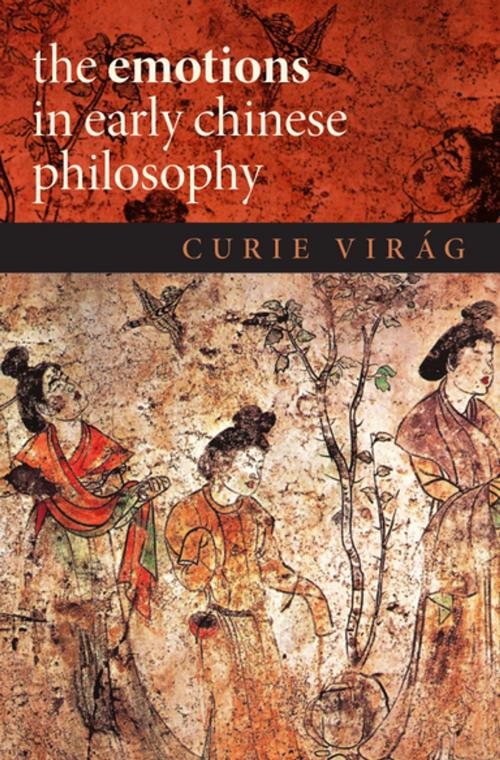| Author: | Curie Virág | ISBN: | 9780190663117 |
| Publisher: | Oxford University Press | Publication: | February 13, 2017 |
| Imprint: | Oxford University Press | Language: | English |
| Author: | Curie Virág |
| ISBN: | 9780190663117 |
| Publisher: | Oxford University Press |
| Publication: | February 13, 2017 |
| Imprint: | Oxford University Press |
| Language: | English |
In China, the debate over the moral status of emotions began around the fourth century BCE, when early philosophers first began to invoke psychological categories such as the mind (xin), human nature (xing), and emotions (qing) to explain the sources of ethical authority and the foundations of knowledge about the world. Although some thinkers during this period proposed that human emotions and desires were temporary physiological disturbances in the mind caused by the impact of things in the world, this was not the account that would eventually gain currency. The consensus among those thinkers who would come to be recognized as the foundational figures of the Confucian and Daoist philosophical traditions was that the emotions represented the underlying, dispositional constitution of a person, and that they embodied the patterned workings of the cosmos itself. Curie Virág sets out to explain why the emotions were such a central preoccupation among early thinkers, situating the entire debate within developments in conceptions of the self, the cosmos, and the political order. She shows that the mainstream account of emotions as patterned reality emerged as part of a major conceptual shift towards the recognition of natural reality as intelligible, orderly, and coherent. The mainstream account of emotions helped to summon the very idea of the human being as a universal category and to establish the cognitive and practical agency of human beings. This book, the first intensive study of the subject, traces the genealogy of these early Chinese philosophical conceptions and examines their crucial role in the formation of ethical, political and cultural values in China.
In China, the debate over the moral status of emotions began around the fourth century BCE, when early philosophers first began to invoke psychological categories such as the mind (xin), human nature (xing), and emotions (qing) to explain the sources of ethical authority and the foundations of knowledge about the world. Although some thinkers during this period proposed that human emotions and desires were temporary physiological disturbances in the mind caused by the impact of things in the world, this was not the account that would eventually gain currency. The consensus among those thinkers who would come to be recognized as the foundational figures of the Confucian and Daoist philosophical traditions was that the emotions represented the underlying, dispositional constitution of a person, and that they embodied the patterned workings of the cosmos itself. Curie Virág sets out to explain why the emotions were such a central preoccupation among early thinkers, situating the entire debate within developments in conceptions of the self, the cosmos, and the political order. She shows that the mainstream account of emotions as patterned reality emerged as part of a major conceptual shift towards the recognition of natural reality as intelligible, orderly, and coherent. The mainstream account of emotions helped to summon the very idea of the human being as a universal category and to establish the cognitive and practical agency of human beings. This book, the first intensive study of the subject, traces the genealogy of these early Chinese philosophical conceptions and examines their crucial role in the formation of ethical, political and cultural values in China.















